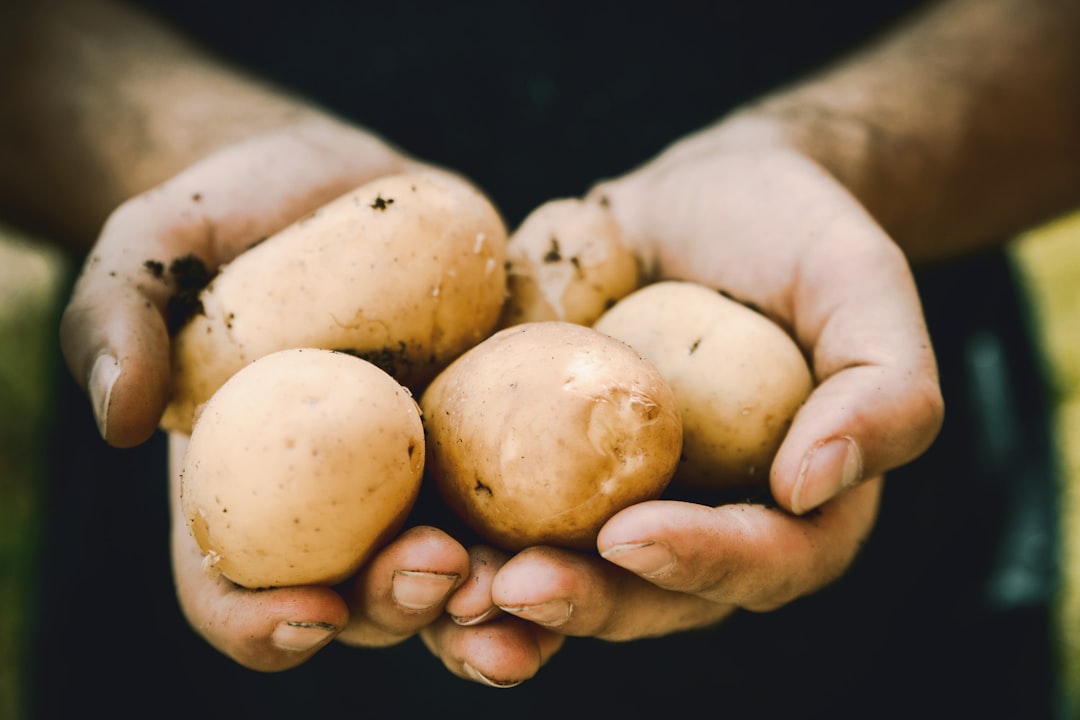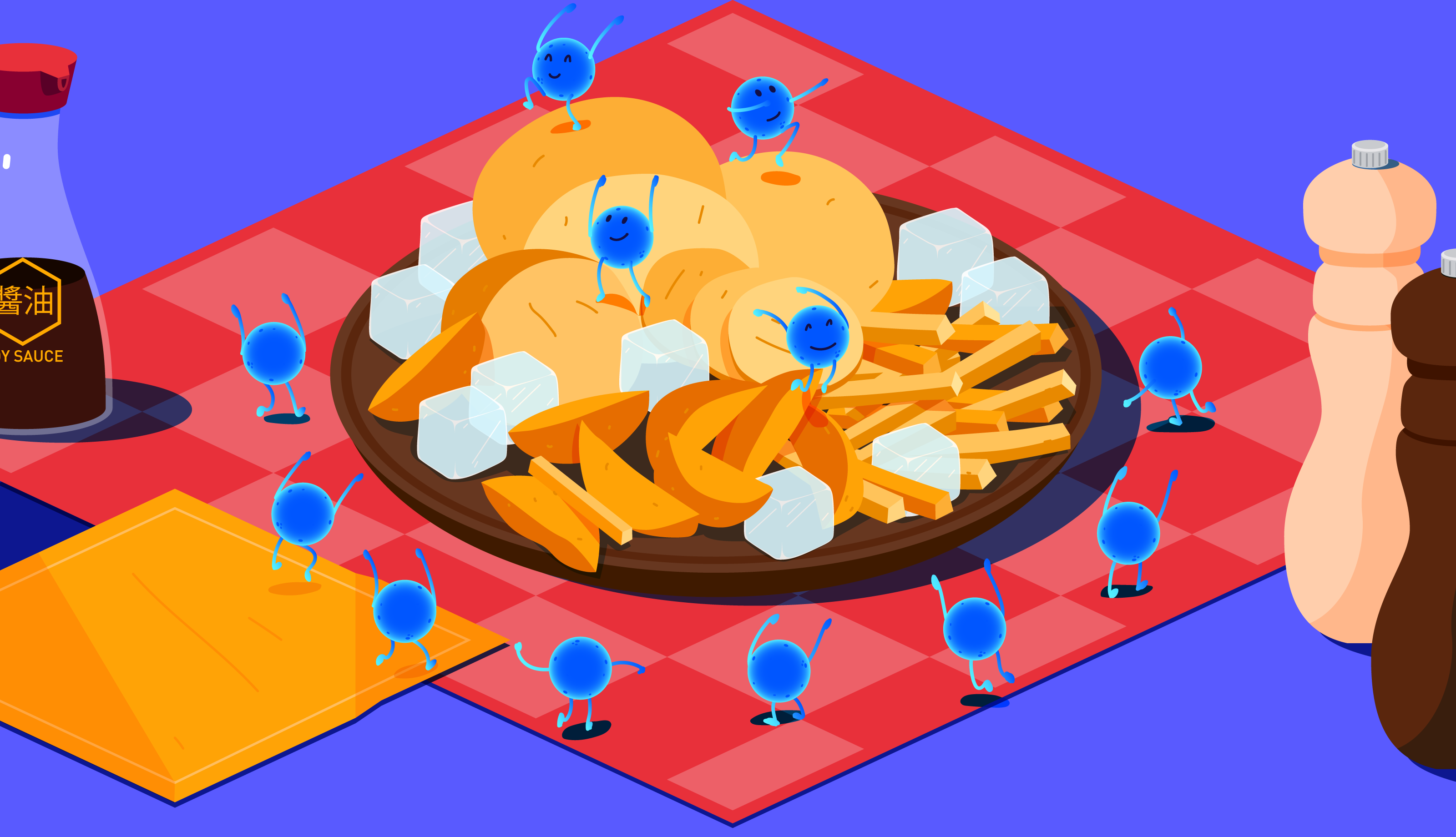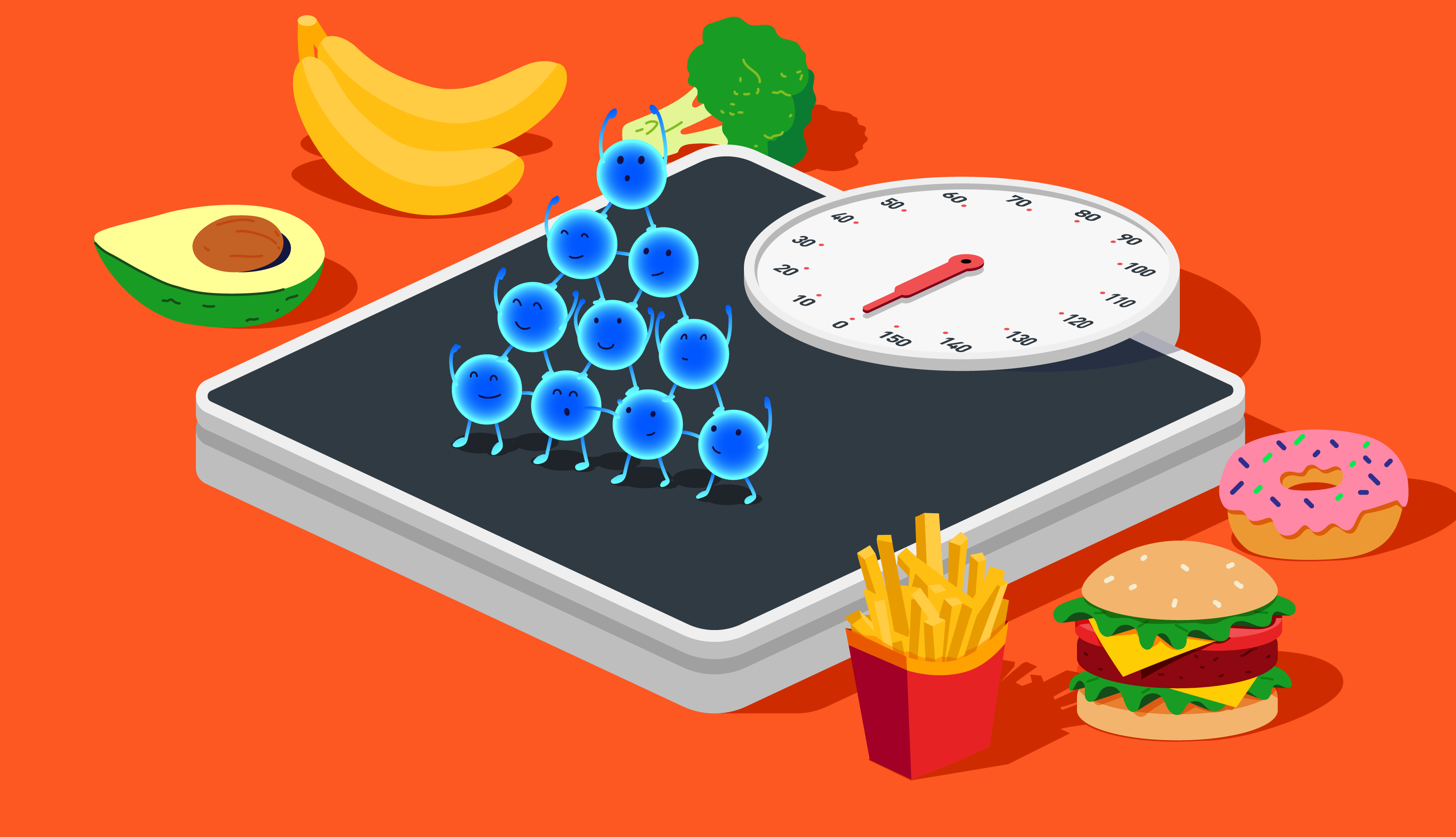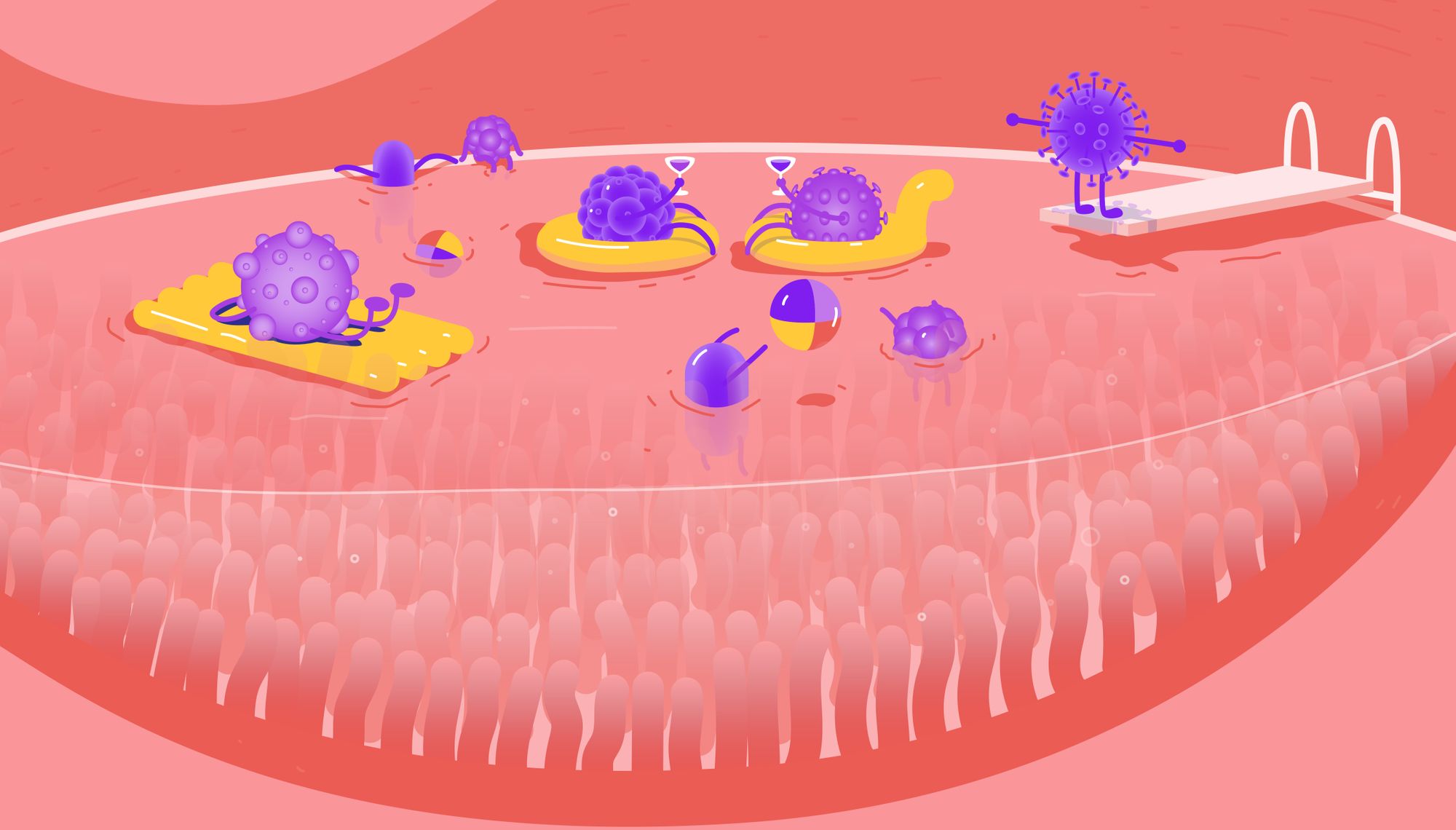Reviled by dieters for many decades, potatoes are making their comeback in the health world because cold potato starch provides fuel for good gut bacteria.
Starches are an important source of food for humans that allowed our ancestors to survive and thrive until recently. Despite the bad press, potatoes have earned newfound respect in the eyes of researchers, thanks to their benefits for the gut microbiome – as long as you cool them before eating.
Table of contents
- What is potato resistant starch?
- Why is cold starch in potatoes special?
- Potato starch benefits for the body
- Potato starch for gut microbiome health
That’s because some of the potato starch becomes resistant starch when cooled, and that makes it a prebiotic, meaning it can nourish important bacteria in your gut. That’s right, you have trillions of microbes to feed in your colon that, in return, perform vital functions to keep you healthy. Simply put, your gut microbiota is an ecosystem you just can’t live without.
What is potato resistant starch?
Starch is a carbohydrate consisting of lots of sugar or glucose branches. In plants, starch is their energy store. That’s why many foods naturally contain it. You’ll probably remember testing for starch at school using a sliced potato and iodine.
Potatoes, and other starchy foods, actually contain a special type of starch, called resistant starch which isn’t digested by your body. It’s “resistant” because it can’t be broken down by the digestive enzymes produced by your body, so it travels all the way to your large intestine where it feeds your gut microbiome.
Types of resistant starches
| Resistant starch | Food sources |
|---|---|
| Type 1 | legumes, seeds, grains |
| Type 2 | raw potatoes, green bananas, plantain, corn |
| Type 3 | cooked and cooled potatoes, and rice, bread, cornflakes |
| Type 4 | chemically-modified starches in processed bread, crackers, cakes |
There are actually four types of resistant starch known to science. Raw potatoes contain resistant starch type 2 (but you shouldn’t eat raw potatoes, so don’t try), but when cooked potatoes get cold – this is the key part – resistant starch type 3 forms, and this is what good gut bacteria can use.
☝FACT☝Digestive resistant cornstarch may also feed gut bacteria, but to a lesser extent than resistant potato starch from cold potatoes.
Why is cold starch in potatoes special?
Starch can be classified according to the speed at which it is digested; rapidly, slowly, or indigestible (resistant). That’s why not all starches are equal: some are quickly turned into glucose in your small intestine, while others can’t be digested by the human body at all.
In the case of the hardy potato, when it’s freshly cooked and piping hot, it contains starch that can be rapidly digested into glucose. This is what earned potatoes ill repute: lots of glucose all at once can make blood sugar levels spike shortly after eating, and if it happens too often, it can increase your risk of chronic metabolic diseases, like type II diabetes and obesity.

But when you leave your potato to cool completely (like totally cold), the starches become resistant to digestion. That’s good because your digestive tract isn’t equipped to break down the resistant starch in potatoes when they’re cold. Instead, the starch reaches the colon intact where your gut bacteria transform it into useful metabolites like short-chain fatty acids (SCFAs).
☝FACT☝Resistant starch from cold potatoes has prebiotic properties and boosts the symbiotic relationship between you and your gut microbes.
Starch in potatoes: is it good for you?
Studies show that resistant starch has several benefits for the gut microbiome and metabolic health. That’s because it, as its name suggests, resists digestion in the small intestine and travels to the colon where gut bacteria ferment it. So, by resisting digestion, the sugar it contains isn’t released into the bloodstream.
That’s compared to foods which contain refined starches (with no fiber to slow down glucose absorption) which are digested and immediately release sugar into the blood. Refined starches are present in foods like processed white bread and pasta.
Spuds have received a lot of bad press regarding their glycaemic index (how quickly a specific food affects your blood glucose levels). It’s generally considered that potatoes have a high glycaemic index because they cause a huge spike in your blood sugar levels not long after eating them.
But inasmuch as that is true, the way you prepare the potato can in fact improve its glycaemic index, and its prebiotic properties. For example, when you cook a potato, it contains a lot of rapidly digested starch and it’s this which causes a rapid increase in blood sugar and triggers the release of insulin from the pancreas.
Potato starch benefits
However, if you cool the potato after cooking, preferably in the fridge, it undergoes some big changes relating to its digestibility. The amount of rapidly digestible starch reduces, but the amount of slowly digested starch increases, so glucose is released slowly into the bloodstream and doesn’t flood your blood with sugar, overstimulating your insulin levels.

Simply put, the level of resistant starch in a cooked and cooled potato increases dramatically. This action improves the nutritional quality of the potato because it increases the dietary fibre load in the colon, and contains the type of resistant starch which is prebiotic.
Who knew that just by changing the way you serve your taters could improve their nutrition? It not only nourishes your gut bacteria, but also has positive benefits for your health. Can’t imagine eating potatoes cold? Well, they taste great in salads, and who doesn’t enjoy a cold roasted spud as a snack, but they’re equally as good reheated!
☝FACT☝Insulin is a hormone released by your pancreas into the bloodstream in response to rising blood sugar levels. Insulin regulates both the use of glucose as energy by cells and how it is stored. If there’s too much glucose, the hormone tells to your liver to store it.
This principle also applies to other starchy carbs too, like pasta. Cooking and cooling pasta increases its resistant starch content, reducing its impact on your sugar levels. Plus, there are other types of resistant starch which have been shown to lower cholesterol levels as well.
And that’s great for human health because factors such as high cholesterol and blood sugar levels can lead to chronic metabolic conditions, like type 2 diabetes and heart disease. Here are a few other resistant starch benefits.
Resistant starch health benefits
- acts similarly to dietary fibre
- lowers blood sugar levels
- improves insulin sensitivity
- reduces serum cholesterol levels
- might aid weight loss
Potato starch for gut microbiome health
To improve the composition of the gut microbiome and increase the health-promoting bacteria which make it up, eating the right foods is essential.
Your intestinal microbes feast on the resistant starch in potatoes (and other sources), break it down, and turn it into magical metabolites which have beneficial health properties. As a result, we can finally say that potatoes are not all bad. In fact, here are some potato starch benefits for your gut:
Resistant potato starch for health
Resistant starch functions as a prebiotic, supporting the abundance of beneficial bacteria in the gut. Some research indicates that it might also specifically enhance probiotic bacteria levels. These especially beneficial bacteria perform essential functions to keep the whole microbiome and gut healthy and happy.
The prebiotic properties of resistant starch are quite simple to understand. When it enters the large intestine, resistant starch is fermented by your gut microbes into short-chain fatty acids, like acetate, butyrate, and propionate, that support gut and microbiome wellbeing.
Eubacterium rectale is a member of the gut microbiota that produces butyrate when it breaks down resistant starch. Resistant starches can also nourish bacteria (like Ruminococcus bromii) that, in turn, produce fuel for butyrate-producing bacteria (like Faecalibacterium prausnitzii).
When bacteria produce substances that nourish other good bacteria, it’s called “cross-feeding”.
One recent study found that potatoes’ resistant starch increased butyrate production most in participants given a potato starch supplement. The take-home here is that resistant starches increase the abundance of butyrate-producers, and that’s great for your gut and wider health!
☝TIP☝ Discover your microbiome’s butyrate production potential with the Atlas Biomed Microbiome Test.
Protects against inflammation and disease
Butyrate also has secondary antioxidant functions which protect you from diseases such as inflammatory bowel disease, ulcerative colitis, and bowel cancer. When chemical reactions occur within the body, they release free radicals which can damage cells, but antioxidants help combat this.
So, consuming resistant starch from foods like potatoes means that your gut bacteria will ferment it and increase butyrate production. Ultimately, thanks to its anti-inflammatory and antioxidant properties, you will have increased protection against some chronic digestive diseases.
Cancer prevention
Colon cancer is the fourth most common cancer in the UK. The anti-inflammatory effect of resistant starch may help protect the body against cancer. Again, butyrate can play a key role in this defence mechanism.
That’s because it is a histone deacetylase inhibitor. Most cancers make an enzyme called histone deacetylase, but butyrate, being an inhibitor, can switch it off. Butyrate has a neat trick up its sleeve in that it causes cancerous cells to kill themselves, a process called apoptosis. Thankfully, this prevents cancer cells from developing further.
☝FACT☝How much resistant starch is in potato starch? In a 138g serving of boiled potatoes, there are approximately 1.8 grams of resistant starch.
So, what is potato starch good for?
The question of whether potato starch is good or bad is a difficult one to answer. People who follow low-carb diets will think that potatoes are off the menu, except cooking and cooling spuds increases their nutritional value. This highlights the benefits of potato starch.
The increased production of butyrate means that when you consume digestive resistant starch, the cells that line your colon are being well-fed, which supports their important functions within the gut. So, is potato starch good for you? Well, the potato starch resistant type 3 definitely is!
A healthy and diverse gut microbiome is essential for unlocking the potential of resistant starches. Eating a varied diet which incorporates plenty of fibre and resistant starch supports a healthy microbiome and encourages the growth and activity of health-promoting bacteria.
☝TIP☝Potato starch health benefits: make sure there’s resistant starch in potatoes by cooling them after cooking them.
- Baxter, N, T et al. Dynamics of Human Gut Microbiota and Short-Chain Fatty Acids in Response to Dietary Interventions with Three Fermentable Fibers, 2019
- DeMartino, P and Cockburn, D, W. Resistant Starch: Impact on the Gut Microbiome and Health, 2020
- Fuentes-Zaragoza, E et al. Resistant Starch as Prebiotic: A Review, 2011
- Giuberti, G and Gallo, A. In Vitro Evaluation of Fermentation Characteristics of Type 3 Resistant Starch, 2020
- Lockyer, S and Nugent, A, P. Health Effects of Resistant Starch, 2017
- Maier, T, V et al. Impact of Dietary Resistant Starch on the Human Gut Microbiome, Metaproteome, and Metabolome, 2017
- Sajilata, M, G et al. Resistant Starch-A Review, 2006
- Seth, E, C and Taga, M, E. Nutrient Cross-Feeding in the Microbial World, 2014
- Slavin, J, L. Carbohydrates, Dietary Fiber and Resistant Starch in White Vegetables: Links to Health Outcomes, 2013
- Trachsel, J et al. Resistant Potato Starch Fuels Beneficial Host-Microbe Interactions in the Gut, 2018
- Zimmerman, M, A et al. Butyrate Suppresses Colonic Inflammation Through HDAC1-Dependent Fas Upregulation and Fas-Mediated Apoptosis of T Cells, 2012
- Upadhyaya, B et al. Impact of Dietary Resistant Starch Type 4 on Human Gut Microbiota and Immunometabolic Functions, 2016
- Ze, X et al. Ruminococcus bromii is a Keystone Species for the Degradation of Resistant Starch in the Human Colon, 2012




















